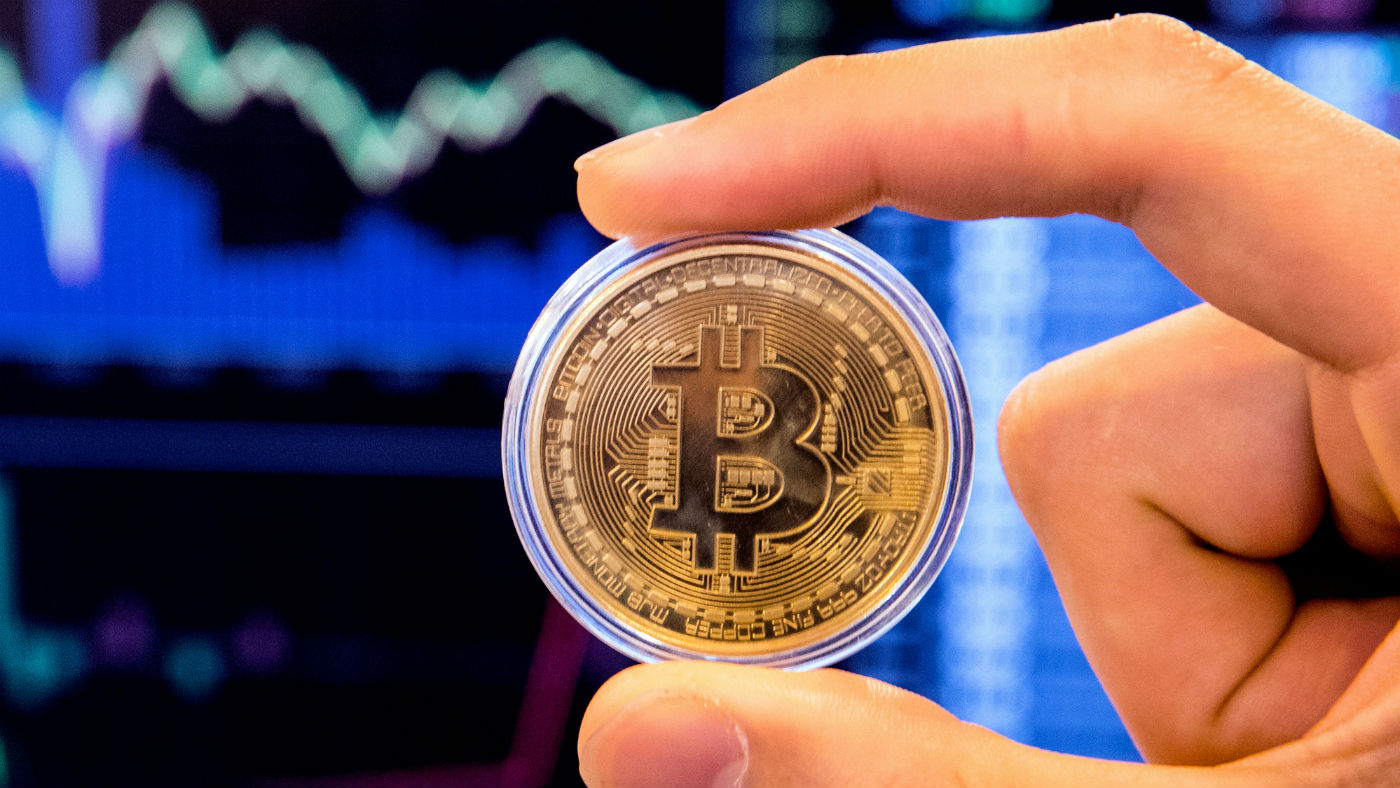Bitcoin’s crash: what the experts think
The price plunge has left some ‘chart-watchers’ nervous

A free daily email with the biggest news stories of the day – and the best features from TheWeek.com
You are now subscribed
Your newsletter sign-up was successful
Chinese burn
“When crypto prices fall, the lurches lower can be rapid,” said Adam Samson and Katie Martin in the FT. We saw as much when the price of bitcoin plunged by 12% in a day on Tuesday, taking the price below $30,000 for the first time since January and dragging down many other “alt-coins”, including ethereum and dogecoin, with it.
The “dominant driver”, according to Michael J. Saylor of MicroStrategy, was further regulatory pressures from China – once the centre of bitcoin production – which has banned the “mining” of bitcoins in major provinces. The country’s central bank has also warned several of the largest state-owned banks and Jack Ma’s Alipay to “identify” and “block” bitcoin transactions.
The Week
Escape your echo chamber. Get the facts behind the news, plus analysis from multiple perspectives.

Sign up for The Week's Free Newsletters
From our morning news briefing to a weekly Good News Newsletter, get the best of The Week delivered directly to your inbox.
From our morning news briefing to a weekly Good News Newsletter, get the best of The Week delivered directly to your inbox.
Death crosses
Bitcoin recovered some ground midweek, said Bloomberg, rising to $34,000 on Wednesday. But it is still down by almost 50% since its April peak of $65,000 – and that has got some “chart-watchers” nervous. “Any meaningful break below $30,000 is going to make a lot of momentum players throw in the towel,” said Matt Maley of Miller Tabak + Co. According to Sean Rooney of Valkyrie Investments, “bitcoin traders could find themselves in choppy waters for weeks to come”.
Traders are muttering about “death crosses” (an ominous chart pattern), said The New York Times. But crypto supporters are still looking “past short-term pain”. Some are optimistic that mine operators will move to the US – particularly Texas, where the governor, Greg Abbott, is promising to make the state a “crypto-leader”, said the Daily Express. There’s also hope in El Salvador, which has adopted bitcoin as legal tender. “China doesn’t have the moral character to mine bitcoin,” said pundit Max Keiser. “America and El Salvador do.”
Harsh lessons
A free daily email with the biggest news stories of the day – and the best features from TheWeek.com
One of the more remarkable findings of the UK financial regulator’s report on cryptocurrencies is that 2.3 million adult Britons are now invested – up from 400,000 a year ago, said Nils Pratley in The Guardian. “The most extraordinary”, though, is that 12% of consumers think crypto investments are “protected”. Nope. “If you lose your shirt on bitcoin, you are not going to be compensated.” There may be some harsh lessons learned this week.
-
 ‘This is something that happens all too often’
‘This is something that happens all too often’Instant Opinion Opinion, comment and editorials of the day
-
 House votes to end Trump’s Canada tariffs
House votes to end Trump’s Canada tariffsSpeed Read Six Republicans joined with Democrats to repeal the president’s tariffs
-
 Bondi, Democrats clash over Epstein in hearing
Bondi, Democrats clash over Epstein in hearingSpeed Read Attorney General Pam Bondi ignored survivors of convicted sex offender Jeffrey Epstein and demanded that Democrats apologize to Trump
-
 Currencies: Why Trump wants a weak dollar
Currencies: Why Trump wants a weak dollarFeature The dollar has fallen 12% since Trump took office
-
 Elon Musk’s starry mega-merger
Elon Musk’s starry mega-mergerTalking Point SpaceX founder is promising investors a rocket trip to the future – and a sprawling conglomerate to boot
-
 TikTok: New owners, same risks
TikTok: New owners, same risksFeature What are Larry Ellison’s plans for TikTok US?
-
 Will SpaceX, OpenAI and Anthropic make 2026 the year of mega tech listings?
Will SpaceX, OpenAI and Anthropic make 2026 the year of mega tech listings?In Depth SpaceX float may come as soon as this year, and would be the largest IPO in history
-
 Leadership: A conspicuous silence from CEOs
Leadership: A conspicuous silence from CEOsFeature CEOs were more vocal during Trump’s first term
-
 Ryanair/SpaceX: could Musk really buy the airline?
Ryanair/SpaceX: could Musk really buy the airline?Talking Point Irish budget carrier has become embroiled in unlikely feud with the world’s wealthiest man
-
 Powell: The Fed’s last hope?
Powell: The Fed’s last hope?Feature Federal Reserve Chairman Jerome Powell fights back against President Trump's claims
-
 Taxes: It’s California vs. the billionaires
Taxes: It’s California vs. the billionairesFeature Larry Page and Peter Thiel may take their wealth elsewhere